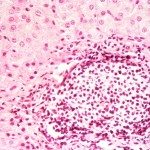Lien vers Pubmed [PMID] – 40204233
Lien DOI – 10.1016/j.cmi.2025.04.002
Clin Microbiol Infect 2025 Jul; 31(7): 1157-1165
Influenza is a significant cause of morbidity and mortality, particularly in critically ill patients. The availability of effective antiviral therapies is pivotal in mitigating the severity and complications associated with influenza.This review evaluates the antivirals available for the treatment of severe influenza in critically ill patients, focusing on the strength of recommendations and levels of evidence derived from clinical trials, observational studies, and guidelines. The aim is to provide clinicians with evidence-based insights to optimize antiviral strategies in the intensive care unit setting.A comprehensive literature search was conducted using PubMed, Embase, and Cochrane Library databases for studies published up to January 2025. Keywords included “antiviral therapy,” “influenza,” “critically ill patients,” “oseltamivir,” “peramivir,” “zanamivir,” “lanimavir,” “baloxavir,” and “favipiravir.” Additional references were identified from the bibliographies of relevant articles.The following topics are covered: antivirals available for treating influenza and evidence supporting their use in critically ill patients, pharmacokinetic issues of enteral oseltamivir administration in critically ill patients, and neuraminidase inhibitors resistance.Neuraminidase inhibitors constitute the vast majority of antivirals currently prescribed for influenza. The most commonly prescribed neuraminidase inhibitor to date is oseltamivir. Although its efficacy in nonsevere cases of influenza is well established, the evidence for its efficacy in critically ill patients is based on less robust studies, as no randomized controlled trials have been conducted in this population. Limited data on oseltamivir pharmacokinetics is available in critically ill patients. The selection of A(H1N1)pdm09 resistant variants to oseltamivir is particularly problematic in critically ill patients hospitalized in intensive care units. Data on other antivirals, such as neuraminidase inhibitors (i.e. zanamivir, peramivir and laninamivir) or baloxavir marboxil in critically ill patients are scarce. Further research is needed to develop new drugs and assess their efficacy in critically ill patients and to better assess the effect of oseltamivir in this population.

